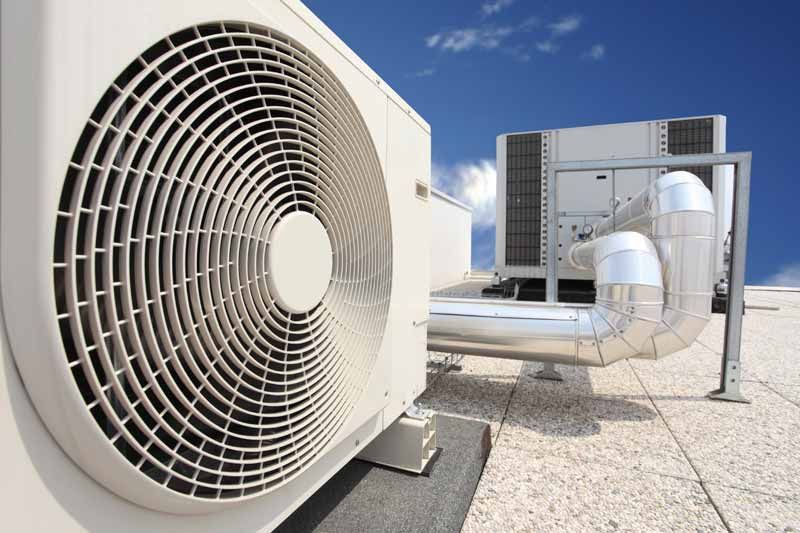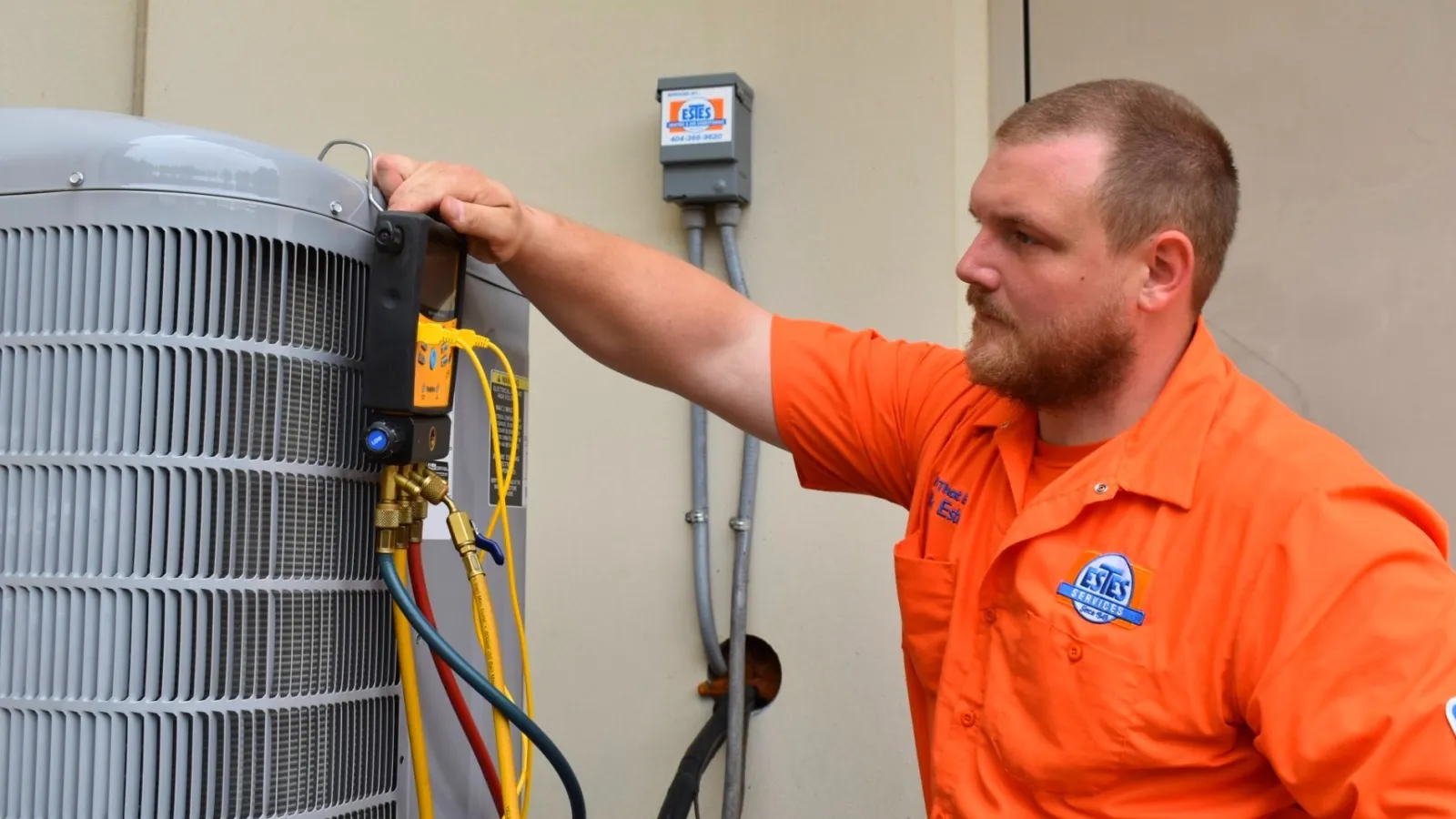Selecting In Between a Warm Pump and Heater: Trick Factors To Consider for Your A/c Needs
When examining home heating options for heating and cooling requires, the choice in between a heatpump and a heating system can be intricate. Each system provides distinct advantages tailored to certain environments and power efficiency goals. Understanding these differences is important for making an educated choice. Secret factors such as setup expenses and environmental impact better make complex the choice process. Which choice genuinely straightens with one's convenience and sustainability preferences? The complying with sections will certainly discover these factors to consider carefully.
Recognizing Warm Pumps: Exactly How They Work and Their Benefits
While several homeowners consider numerous home heating options, understanding how heatpump feature and their benefits can greatly affect their choice. Warmth pumps run by moving warmth instead of generating it. In the wintertime, they draw out warmth from the outside air or ground and move it inside your home, while in the summertime, they reverse this process, cooling the home by expelling heat outside. This twin functionality makes them functional for year-round climate control.One of the primary advantages of heatpump is their power effectiveness. They make use of substantially much less power compared to typical heating systems, possibly resulting in reduced utility expenses (heat pump service). In addition, warm pumps have a smaller sized carbon impact, making them an eco-friendly selection. They likewise need less maintenance than traditional systems, adding to lasting expense financial savings. On the whole, comprehending the auto mechanics and benefits of heatpump can aid property owners make educated decisions regarding their home heating and cooling requirements
Discovering Heating Systems: Kinds, Procedure, and Benefits
Heaters can be found in numerous types, including gas, electrical, and oil versions, each with distinct operational mechanisms. Comprehending these differences is important, as they affect effectiveness and heating efficiency. In addition, heaters use numerous benefits, such as consistent heat outcome and dependability in cooler environments.
Types of Heating systems
Heating unit can vary significantly in style and operation, with heaters being a preferred choice amongst homeowners. There are numerous kinds of heating systems, each using different gas resources and technologies. Gas heaters prevail, leveraging gas to produce warmth effectively. Electric heating systems, on the other hand, make use of electrical resistance to produce warmth, commonly favored for their straightforward installment. Oil heating systems, while less usual, work in areas with restricted gas gain access to (heat pump replacement ooltewah tn). Furthermore, condensing heaters make best use of energy effectiveness by recording and reusing exhaust gases. Each type runs through a system of warm exchangers and ductwork to distribute warm air throughout a home. Recognizing the distinctions in between these heating system types is essential for notified cooling and heating decisions
Advantages of Heaters
For house owners looking for trustworthy warmth throughout cold months, the advantages of heating systems are significant. Heating systems provide regular heating, making certain even temperatures throughout the home. They are specifically efficient in severe chilly, typically surpassing heatpump in cold problems. Numerous kinds, including gas, electric, and oil heating systems, offer versatility to satisfy varied demands and preferences.Furnaces also tend to have reduced first installment prices compared to heatpump, making them a much more accessible choice for lots of. Their durable layout adds to a much longer life-span, with many units lasting over 15 years with appropriate maintenance. Additionally, modern-day heaters are frequently furnished with advanced technology for boosted performance, which can lead to reduced power bills. Overall, furnaces continue to be a dependable selection for reliable home heating.

Energy Effectiveness: Comparing Heat Pumps and Furnaces
When comparing energy performance between warm pumps and heaters, the Seasonal Power Effectiveness Proportion (SEER) plays a crucial function in determining efficiency. In addition, a functional cost analysis reveals the lasting economic implications of each system. Recognizing these factors can guide property owners in making notified choices about their home heating remedies.
Seasonal Power Performance Proportion
Energy effectiveness plays an essential duty in the decision-making process in between warmth pumps and furnaces, especially when thinking about the Seasonal Energy Effectiveness Ratio (SEER) This statistics measures the cooling performance of heatpump over a whole air conditioning season, providing a standard method to examine performance. Greater SEER rankings show higher energy performance, converting to reduced energy consumption and minimized energy bills. On the other hand, furnaces are generally evaluated making use of the Annual Fuel Use Efficiency (AFUE) score, which reflects heating performance. When contrasting these 2 systems, property owners need to prioritize SEER rankings for heatpump, as they directly effect total energy cost savings and ecological sustainability. A complete understanding of SEER can notably influence the long-lasting complete satisfaction and cost-effectiveness of the selected HVAC solution.
Functional Cost Analysis
Comprehending the functional costs related to heatpump and heating systems is important for homeowners evaluating their options. Heat pumps generally use greater energy efficiency, transforming electric power into heat with very little waste. This leads to lower month-to-month utility costs, particularly in modest climates. Conversely, standard Extra resources furnaces, particularly gas models, might have reduced ahead of time expenses but can incur higher functional expenses gradually due to fuel rates and efficiency ratings.Moreover, warmth pumps can operate as both heating and cooling down systems, possibly decreasing the demand for separate a/c systems. While initial investments for warmth pumps may be greater, their long-term cost savings in power effectiveness can make them a more economical selection for several homes. Cautious evaluation of regional power prices is important to establish the most effective choice.
Installation Prices: What to Expect for every Furnace
Installment expenses for furnace can vary substantially between warmth pumps and heaters, affecting property owners' decisions. Warmth pumps generally have higher ahead of time installment expenses, generally ranging from $3,500 to $8,000, relying on the unit dimension and complexity of installment. This consists of the outside unit, interior handling system, and necessary ductwork adjustments. On the other hand, heating systems have a tendency to have reduced first prices, balancing between $2,500 and $6,000, which can be appealing for budget-conscious property owners. Installation expenditures can enhance if substantial ductwork is required.Moreover, the choice of gas type for furnaces-- all-natural gas, lp, or electrical-- can likewise impact installation prices. While warmth pumps offer power efficiency, their initial financial investment may deter some purchasers. Ultimately, evaluating installment expenses together with long-term financial savings and effectiveness will aid home owners in making educated decisions about their home heating systems.
Environment Considerations: Which System Carries Out Much Better in Your Area
Just how view publisher site do climate problems influence the performance of furnace? The performance of heatpump and furnaces can differ substantially depending on the regional climate. In moderate climates, warmth pumps succeed by efficiently moving heat from the outside air, making them an energy-saving option. Nevertheless, their efficiency reduces in incredibly cool temperatures, where they may struggle to remove sufficient warm. Conversely, heating systems, specifically gas versions, give reliable and consistent heat despite outdoor conditions, making them more effective in chillier regions.In areas that experience milder wintertimes, warmth pumps can run effectively year-round, supplying both cooling and heating. In contrast, regions with extreme wintertimes often profit from the toughness of furnaces. Inevitably, comprehending the local environment is important when choosing in between a heatpump and a heater, as it straight affects their functional effectiveness and overall efficiency.
Upkeep Demands: Long-Term Care for Warmth Pumps vs. Furnaces
While both heatpump and heating systems need regular upkeep to ensure peak efficiency, their specific requirements and treatment regimens vary significantly. Furnaces commonly require less regular interest, with yearly examinations being adequate to look for gas leakages, clean filters, and evaluate total performance. Their simpler style often allows for straightforward repairs.In comparison, heatpump require biannual maintenance as a result of their dual duty in heating and air conditioning. This includes cleaning coils, inspecting refrigerant levels, and ensuring that both the exterior and interior devices work at their finest. Additionally, heat pump upkeep frequently entails more detailed components, making expert maintenance essential.Neglecting maintenance can cause lessened efficiency and boosted energy costs for both systems. Eventually, home owners need to think about these lasting treatment requirements when selecting in between a heatpump and a heating system, as positive upkeep can expand the life expectancy and efficiency of either system substantially.
Ecological Effect: Picking a Lasting Home Heating Option
The environmental effect of heater is a critical assessment for house owners looking for lasting options. Warmth pumps are generally much more energy-efficient than traditional heaters, as they transfer warmth instead of produce it, greatly minimizing carbon emissions. By utilizing renewable resource sources, such as air-source or geothermal heat pumps, homeowners can further lessen their eco-friendly footprint.On the other hand, gas heaters release greenhouse gases and add to air pollution, though they commonly supply higher warmth result. Developments in technology have actually led to the development of high-efficiency heating systems that reduce emissions.Ultimately, picking a heating system entails evaluating efficiency versus environmental influence. House owners are encouraged to assess regional energy resources and motivations for eco-friendly systems, making certain a selection that lines up with both individual comfort and environmental responsibility. The choice impacts not just immediate comfort yet also lasting sustainability and environmental wellness.
Often Asked Concerns
How Much Time Do Warm Pumps and Furnaces Generally Last?
The life-span of warmth pumps commonly ranges from 15 to two decades, while furnaces can last in between 15 to 30 years. Routine upkeep considerably influences their longevity and efficiency in giving heating remedies.
Can I Use a Warm Pump in Extremely Cold Climates?
Heatpump can run in extremely chilly climates, but their effectiveness diminishes as temperature levels drop. In such conditions, supplementary heating sources may be required to keep comfy interior temperatures and assure peak performance.

What Is the Noise Degree of Heat Pumps Versus Furnaces?
The sound degrees of heatpump and heating systems vary significantly. Normally, warmth pumps run even more silently than standard furnaces, making them more effective for those sensitive to sound, while heaters may generate louder operational sounds during home heating cycles.
Are Warmth Pumps Suitable for Both Cooling And Heating?
Warmth pumps are indeed ideal for both cooling and heating (heat pump installation ooltewah tn). They function by transferring warmth, offering reliable temperature level control year-round, making them a versatile selection for property owners seeking an all-in-one HVAC remedy
What Size Furnace Do I Required for My Home?
Identifying the ideal dimension heating unit for a home calls for assessing variables such as square video footage, insulation quality, neighborhood environment, and the home's layout. Consulting a professional can assure an accurate evaluation and excellent convenience. Warmth pumps normally provide greater energy performance, converting electrical energy right into warmth with minimal waste. In moderate environments, warm pumps succeed by efficiently moving heat from the outside air, making them an energy-saving choice. Alternatively, furnaces, specifically gas models, offer consistent and reputable warm no his response matter of exterior problems, making them better in colder regions.In locations that experience milder winters months, warm pumps can operate effectively year-round, supplying both home heating and air conditioning. Warm pumps are typically a lot more energy-efficient than typical heaters, as they move warm instead than produce it, considerably minimizing carbon discharges. By making use of sustainable energy resources, such as geothermal or air-source heat pumps, property owners can even more minimize their environmental footprint.On the various other hand, natural gas furnaces discharge greenhouse gases and add to air pollution, though they frequently provide higher heat result.
Comments on “The Complete Installation Guide for heat pump installation ooltewah tn”